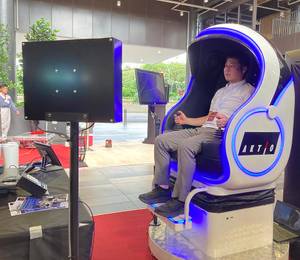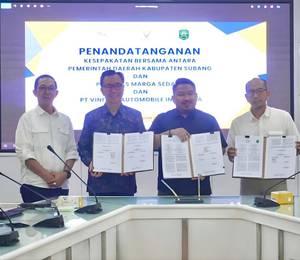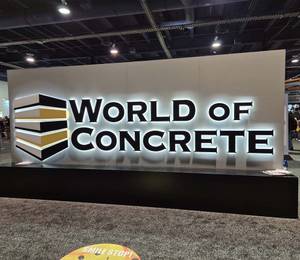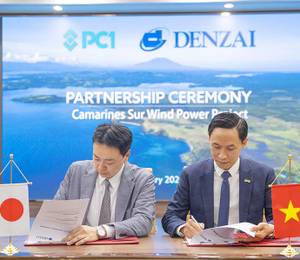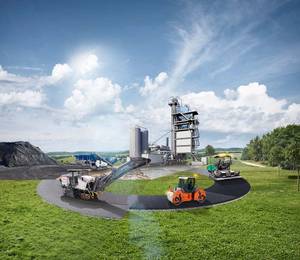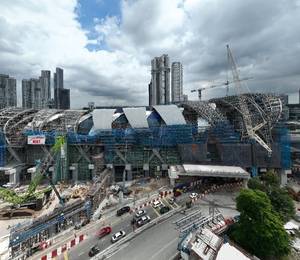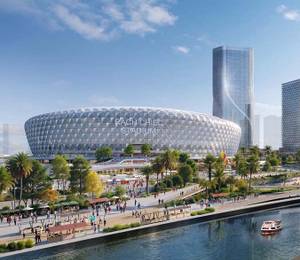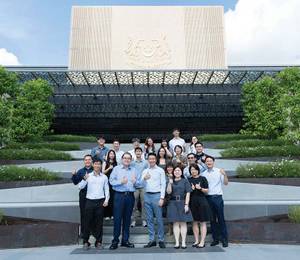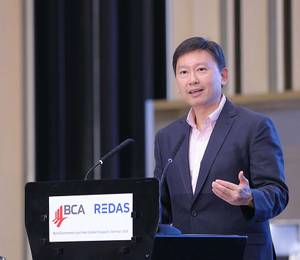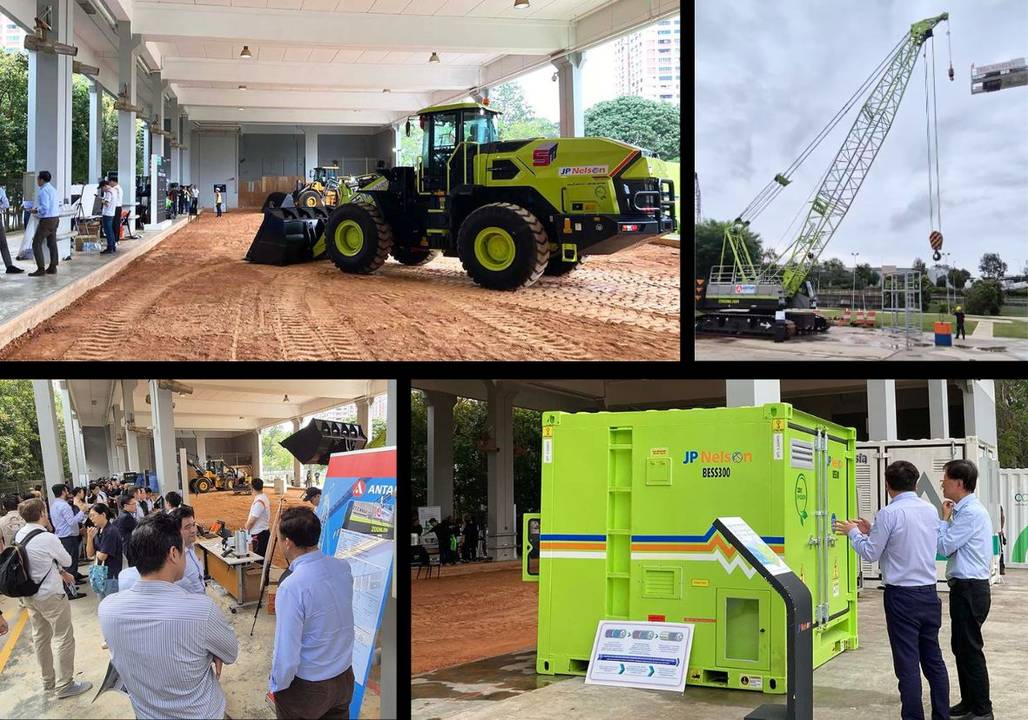JP Nelson Equipment, one of Singapore’s leading equipment and machinery suppliers, recently participated in the Green Construction Technology Exchange event, showcasing its eco-friendly solutions aimed at reducing carbon emissions and enhancing energy efficiency on the jobsite.
The Green Construction Technology Exchange took place on 21 March 2025 at the BCA Academy Braddell Campus, Singapore, organised by the Building and Construction Authority (BCA). The event brought together contractors, suppliers, manufacturers, developers and other industry stakeholders to share their experiences and insights on implementing sustainable construction strategies.
At the event, participants were able to connect with and learn from one another, as well as raise awareness of various solutions available on the market. There were also live demonstrations of energy-efficient equipment and machines, including an electric crawler crane, electric wheel loaders and battery energy storage systems (BESS).
BESS solution
JP Nelson’s BESS system comprises the BESS 500 and BESS 300, which come with a rated power of 500 kW and 300 kW respectively. These models are CE/UL/IEC certified, and serve as a sustainable alternative to diesel-powered generators at work sites.
Delivering zero emissions and zero noise pollution, the BESS units provide high energy efficiency and economical operation costs. They feature a sound level of only ≤58 dB(A) and their usage can be monitored remotely, making it easier for the users.
The BESS system offers many advantages. It is environment-friendly, reducing reliance on fossil fuels and greenhouse gas emissions. It can be used in a wide range of applications, from residential to industrial projects. It also enhances the reliability and utilisation of renewable energy sources. Plus, it has economic benefits, with potential for cost savings through peak shaving and energy arbitrage.
JP Nelson pointed out that given the increase in Singapore’s carbon tax over the coming years, the BESS system will bring an even greater benefit to local users. The carbon tax rate was already set to S$25/tCO2e in 2024 and by 2030, it is expected to reach S$50-80/tCO2e. This higher carbon tax means an increase in fuel price.
Moreover, the newly launched Energy Efficiency Grant (EEG) by the Singapore government will also encourage the adoption of BESS. This grant supports local construction firms in transitioning towards greener operations by co-funding investments in energy-efficient equipment, such as BESS, electric wheel loaders and electric excavators.
A highlight of JP Nelson’s BESS system is the use of a semi solid-state battery pack, equipped with a liquid cool system. It can last for approximately 10 years, with 5,000 charging cycles.
“These semi solid-state batteries are safer than lithium-ion batteries and they don’t catch fire easily,” explained Nelson Lim, executive chairman of JP Nelson. “Solid-state cells are one of the latest battery technologies, where the industry is currently heading to.”
“The lifespan of a solid-state battery is also longer than that of a lithium-ion battery,” added Mr Lim. “Plus, it can be charged faster than a lithium-ion battery, so it allows users to save more fuel.”
Mr Lim revealed that JP Nelson plans to electrify about 30% of its local equipment within the next three years. As awareness of eco-friendly products rises in Singapore, along with the government’s push for sustainability, he believes energy-efficient equipment will become a more attractive choice for local contractors.
JP Nelson has aligned its future direction and goals with the Singapore Green Plan 2030. However, Mr Lim shared that the company’s sustainability journey was not an easy task. “We had to go through a lot of issues and changes in the beginning. But to be successful, we need to take our first step and enter the market at the right time. Every journey starts with a small step.”
On JP Nelson’s expansion in Southeast Asia, Mr Lim said, “After Singapore, I think Malaysia will be the up-and-coming market for us.”
Electric wheel loader and crawler crane
JP Nelson also offers an electric wheel loader for Singapore market. The machine features an operating weight of 18,200 kg and a battery capacity of 282/350 kWh. It can operate for up to 12 working hours.
Fitted with a spacious cab, this electric wheel loader provides a rated load capacity of 5,800 kg, a bucket capacity of 2.5 to 4.5 cu m, and a two-speed electric drive system. The machine has a gradient angle of 30°, a digging force of ≥170 kN and a travelling motor power of 120/240 kW, with an excavation depth of 45 mm.
Meanwhile, the ZCC850V-1EV electric crawler crane is powered by a 166.3-kWh battery pack, which is capable of running for about eight hours or more when fully charged, depending on the application. The charging time is approximately 4.5 hours using a 40 kW charging point. The battery can last for more than 10 years with about 3,000 charging cycles.
Equipped with a boom length of 13-61 m and a fixed jib length of 7-19 m, the ZCC850V-1EV has a maximum lifting capacity of 85 t and a maximum lifting moment of 363 tm. The travelling speed is up to 1.4 km/hr, with a gradeability of 30%.
The crane’s operator cab is fitted with an air-suspension seat, a working light and rear-view mirrors that give excellent visibility of the jobsite. The noise level inside the cab is below 65 dB, increasing operator comfort.
Both the electric wheel loader and electric crawler crane deliver zero emissions and low noise levels, suitable for use in urban areas, especially in projects with high environmental protection requirements. The machines require lower maintenance compared to their diesel counterparts, thus reducing operating costs for the customers.
Note: This story has also been published in the May/Jun 2025 issue of SEAC (with more images). Click here to read online or here to download the PDF file (pages 42-45).
